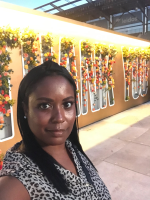As soon as he was overwhelmingly elected to a second term as Governor of Florida, Ron DeSantis wasted no time re-planting a flag in the national culture war. It is widely assumed that DeSantis will be a candidate for President in 2024. It remains to be seen whether or not his attempts to alter the curriculum for the teaching of Black History will prove to be a winning strategy in the Republican primary or in a general election.
But that curriculum has certainly been altered. The College Board — the non-profit educational organization which produces the Advanced Placement, or AP, course material at issue in Florida — contends it did not revise the curriculum because of political pressure. David Coleman, the CEO of the College Board, insisted in his interview last week with NPR's Mary Louise Kelly that the revisions were made well before the Florida governor's criticisms.
But those revisions were announced just a couple of days after Florida Gov. DeSantis blasted the original draft of the course as contributing to a leftist political agenda. Florida's Commissioner of Education described it as “woke indoctrination masquerading as education.”
When the College Board first announced the Advanced Placement course in African American history last August, it garnered praise from scholars on the left. The revised version, released last week, deletes some of the most well-known contemporary voices in the African American canon, and delegates topics like Black Lives Matter and Critical Race Theory to a list of possible research topics, rather than as part of the course itself.
The issue of what to teach and what to suppress in telling the story of our country’s racial history became a cause celebre on the right. Gov. DeSantis has now expanded his attacks to encompass not just the high school AP course, but college and university curricula as well.
Florida isn’t the only state to have challenged the dimensions of what Black History should include. Nearly half of all states have passed legislation against Critical Race Theory, which before it became a hot topic, had only been taught in law schools.
Today on Midday: Conversations with teachers who teach Black Studies in Baltimore high school classrooms. Plus, the perspective of the African American Studies scholar who coined the hashtag, #BlackLivesMatter.

We begin with Patrice Frasier. She is the chair of the Social Sciences Department at Baltimore Polytechnic Institute, a city public school where she teaches American Government and African American Studies. Poly is one of 60 schools across the country selected to test the pilot AP African Studies course, and Ms. Frasier is one of the teachers who'll be teaching that course next year.
Patrice Frasier joins us on Zoom…
Then, Tom speaks with Damian Ford, a student support specialist who teaches Black literature at the Baltimore School for the Arts.
Damian Ford joins us on Zoom…
Tom's final guest today is Dr. Marcus Anthony Hunter. He’s the chair of the African American Studies Department at UCLA.
Dr. Hunter joins us on Zoom from Los Angeles.







